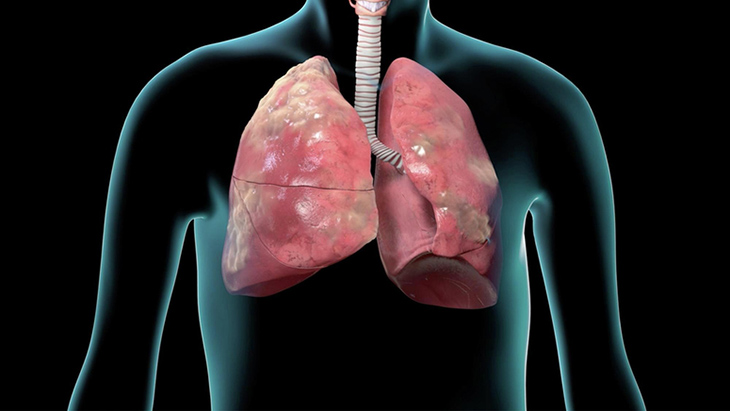
Many assume that smoking is the number one culprit behind COPD. In reality, researchers think that there is something deadlier. They say that insufficient or interrupted sleep may actually bear more weight on COPD symptoms, this was what a study found. Hence, those who suffer from COPD should prioritize curing their sleep issues, researchers stated.
All about COPD and Sleep
The researchers have found how poor sleep is linked to an increased risk of what could be potentially life-threatening disease flare-ups in those who suffer from chronic obstructive pulmonary disorder (COPD). This is according to a new study made by scientists.
Those living with COPD have lung conditions that block airflow. Hence, they have difficulty breathing. COPD is classified into two main types: emphysema and chronic bronchitis. There are many of those who have to deal with both, according to the National Heart, Lung, and Blood Institute (NHLBI).
In order to find out more about the disease, researchers performed sleep assessments for a total of 1,647 patients who have been diagnosed with COPD. Follow-ups were made over the next three years in order to monitor the number of times they experienced flare-ups that required medical attention and treatment.
They compared the number to those who slept well and found that those who experienced mild sleep issues had a 25 percent chance for COPD flare-ups. This was according to the study’s results, reported June 6 in the journal Sleep. Those with acutely insufficient or interrupted sleep twice more likely to go through these flare-ups.
In the long run, the worsening of signs and symptoms such as shortness of breath and cough can bring about irreversible lung damage. This aggravates COPD and increases their chances of having the disease progress. If nothing will be done, this can be fatal, as the study team had observed.
Unfortunately, clinicians don’t look deeper into sleep when they evaluate the health condition of those who have COPD, said the senior study author, Neeta Thakur, MD. She is a pulmonologist at the University of California San Francisco (UCSF) School of Medicine. She said this in a statement she recently made.
“Sleep hygiene and sleep aids may significantly improve their health,” Dr. Thakur said. “Sleep should be considered both in the clinic and at the wider community/neighborhood level, where the structural factors that contribute to worse sleep can be addressed.”
The participants involved in the study were an average of 65 years old. They suffered from moderately severe COPD at the beginning of the study. It must be noted that they also used to smoke. Also, more than 50 percent of them were men, the majority were white, and around 14 percent of the participants in the study were of African American.
For those who suffered from severe sleep problems, the increased risk of COPD flare-ups can be compared to those who had a 60-year history of smoking. In fact, they did worse than those who had a 40-year history of the habit, said the lead study author, Aaron Baugh, MD, of the UCSF Cardiovascular Research Institute.
The researchers also observed that poor sleep was much more observed among African Americans who were involved in the study. The COPD flare-ups impacted 63 percent of them when compared to the 52 percent of white patients. The results suggest how this discrepancy may be one reason why African Americans may have had worse prognosis with COPD, Dr. Baugh explained.
“African Americans are overrepresented in low-income neighborhoods, where people are less likely to have good quality sleep,” Baugh said. “They may live in crowded spaces with multiple roommates, and have less comfortable sleeping conditions, such as a couch, and they may work in a job with a varying schedule that lends itself to sleep disruption.”
It also must be noted that the the study wasn’t a controlled experiment that had been designed to prove whether or how sleep might directly impact the outcomes brought about by COPD. However, Bough said that it’s possible that sleep deprivation might be the reason behind the decline in infection-fighting antibodies and proteins known as cytokines. The latter is what signals the immune system to work once an infection takes place.
The U.S. Centers for Disease Control and Prevention (CDC) has given tips and recommendations for good sleep hygiene or healthy habits. The following may help you get the high-quality rest you need:
- It’s all about consistency. This means that you should try to sleep around the same time every night and get up at a specified time each morning as well. Weekends are included here.
- You need to ensure that the bedroom is quiet, dark, and relaxing. The temperature set should be comfortable as well.
- Take out all forms of electronic device such as television, computers, and smartphones when you’re about to sleep.
- Avoid taking meals, caffeine, and alcohol right before going to bed.
- Include exercise in your routine because physical activities done during daytime helps you get a more restful sleep at night.



